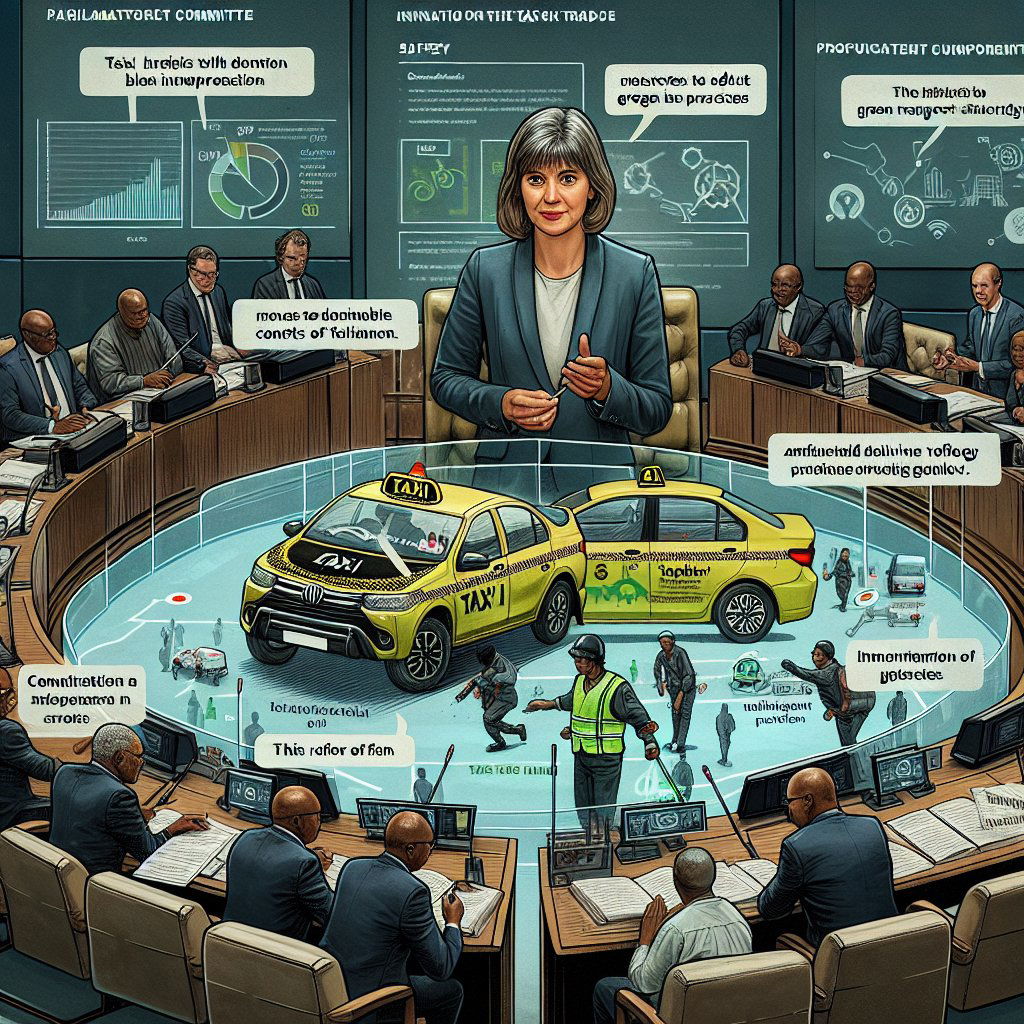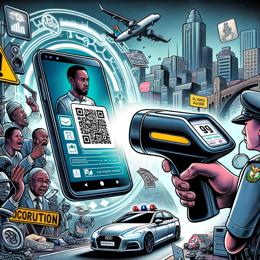Image created by AI
Transport Minister Creecy Emphasizes Collaboration with Taxi Industry for a Safer, Greener Future
South Africa's Transport Minister Barbara Creecy has made a significant commitment to collaborate with the taxi industry to improve safety and usher in a new era of green practices within the sector. Addressing Parliament's Portfolio Committee on Transport in Cape Town, Creecy underscored that the taxi service, responsible for transporting 83% of public transport users, is an intrinsic part of community life and needs to be integrated effectively into a safer and environmentally friendly transport ecosystem.
In a major push to reduce the risks of conflict and violence that plague the taxi industry, measures are set to be implemented to ensure the safety of both the commuting public and industry operators. The Taxi Industry, historically marred by incidents of violence, stands on the brink of a transformative period that aims to solidify its role in the transport network while introducing practices focused on safety and professional service.
Acknowledging the blows dealt by the COVID-19 pandemic, Minister Creecy highlighted the extended support provided through the Taxi Relief Fund meant to offset incurred financial losses. A step further is the Taxi Recapitalisation Strategy, aimed at scrapping unroadworthy vehicles and professionalizing the industry, thus contributing to its regularisation.
On the front of climate action, the initiation of the Green Transport Strategy is pivotal as South Africa braces to combat climate change and enhance resilience. Anticipating the new Climate Bill, the transport sector is prepping for reduced greenhouse gas emissions, in line with the National Development Plan's target of net-zero emissions by 2050.
The strategy includes the adoption of alternative fuels, expansion of the rail network, and green procurement guidelines, with the intent of fostering investment, job creation, and economic inclusion. The incorporation of digital technology such project as operational automation, digital signalling, artificial intelligence in traffic management, and autonomous delivery vehicles, signals a prospective overhaul of the transport landscape.
Creecy's vision aligns with a forward-thinking ethos that reflects global imperatives and encompasses new skill requirements, unveiling opportunities across new economic value chains. As the transport realm stands on the cusp of a major transformation driven by digital innovation, the commitment to working in tandem with the taxi industry heralds a promising transition to a future-proof transport ecosystem in South Africa.










